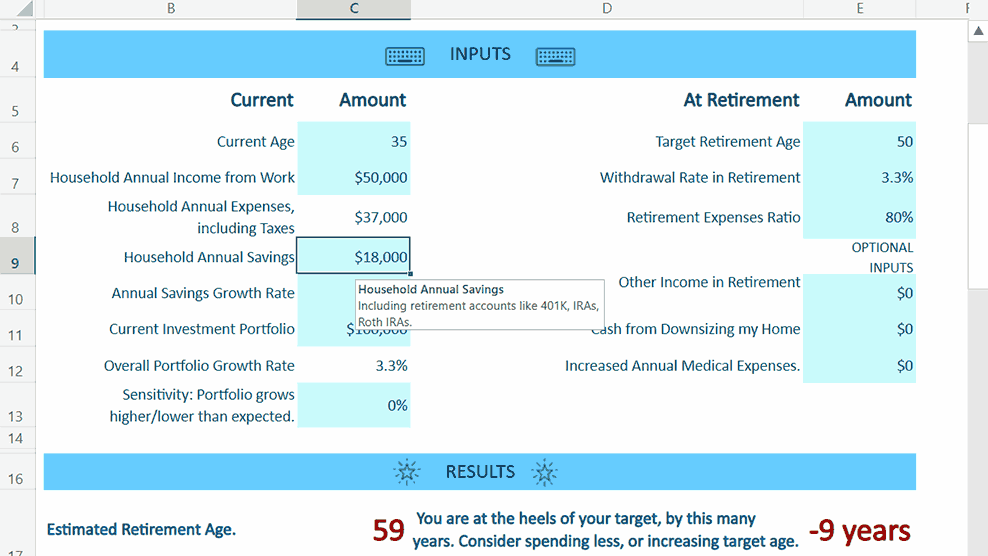How Much Money Do You Need To Retire Comfortably?
Planning for retirement can seem overwhelming. You want to make sure you have enough to cover the basics—while still being able to fund a lifestyle that you’ll enjoy.

So, if you find yourself wondering how much money you need to retire comfortably, you’re certainly not alone. While there’s no magic number, there are some specific percentages to strive for—as well as several factors to consider when deciding how much to save—and when to call it quits at work.
We’ve created this simple guide, along with some basic questions to ask yourself, as you begin thinking about retirement:
When do you want to retire? How early, or how late, you want to retire will play a significant role in how much money you’ll need to save to do it comfortably. Think about the life you’ll want to lead, what you’re going to do, and, ultimately, how many years you’ll need to stretch your dollar after leaving the workforce. Right now, the average life expectancy in the U.S. is 79.5 years old. So, if you retire at the standard age of 65, for example, your money will need to support you for about 14 years. If you want to retire early, say at age 55, you’ll need to stretch that money across 24 years. If you love your work, you may want to hold off on retirement so you can continue to build your savings while bringing in a regular income. If you’re looking forward to leaving your career behind, or if your health is an issue, planning for an early retirement may be the best choice.
What sources of income do you have? It’s ideal to enter retirement with more than one source of income. Whether you have multiple retirement savings accounts, investments, or another type of passive income, the more ways you can diversify your income, the better off you’ll be. Analyze where your retirement money will be coming from, and pool it together in a budget. While you’ll probably have money coming each month from social security, it’s not recommended that you rely on it entirely. Social security is designed to provide a cushion for basic things like utilities and food, rather than unexpected expenses or leisure activities.
What are your plans for retirement? There’s a new sense of freedom when you reach retirement age. The weight of working has been lifted off your shoulders and you have more time for things like traveling and pursuing hobbies. But the reality is: these things cost money. Consider your lifestyle when creating your annual budget for retirement, so you’ll be ready when the time comes.
Do you plan on working a little during retirement? Not everybody plans to leave the workforce entirely when they retire. It’s not uncommon to take on a part-time job, do some consulting work, or just pursue a new passion entirely. It not only keeps you socially connected—it’s a great way to supplement your retirement savings and keep you on track financially. When planning your budget, consider whether or not you’ll be earning income above and beyond social security.
Where are you going to live? The cost of living in the city or town where you plan to retire will be an important factor to consider when creating a budget. From housing and transportation, to property taxes, utilities, groceries, gas, insurance and beyond—some places are much more expensive than others. For example, if you dream of retiring in Hawaii, be prepared to shell out a lot more money than if you retire in the Midwest. Remember: it’s all about location, location, location.
So, how much money do I need to retire comfortably? If you’re looking for an exact dollar amount, there’s no easy answer, since it’s different for everyone. But the percentages are the same. For example, some experts believe you’ll need about 80% of your gross annual income in order to retire comfortably. So, let’s say you’re earning $100,000 a year (gross income) before you retire. You will likely be spending the equivalent of about $80,000 a year after retirement. Some experts suggest a good rule of thumb is to save 15% of your income every year (starting in your 20s, ideally) until you retire.

While there’s no one-size-fits-all answer, there are some free retirement planning templates and online calculators to get you started. It’s also a good idea to speak with an experienced financial planner to help you meet your goals.

Get started with Microsoft 365
It’s the Office you know, plus the tools to help you work better together, so you can get more done—anytime, anywhere.
Learn more












